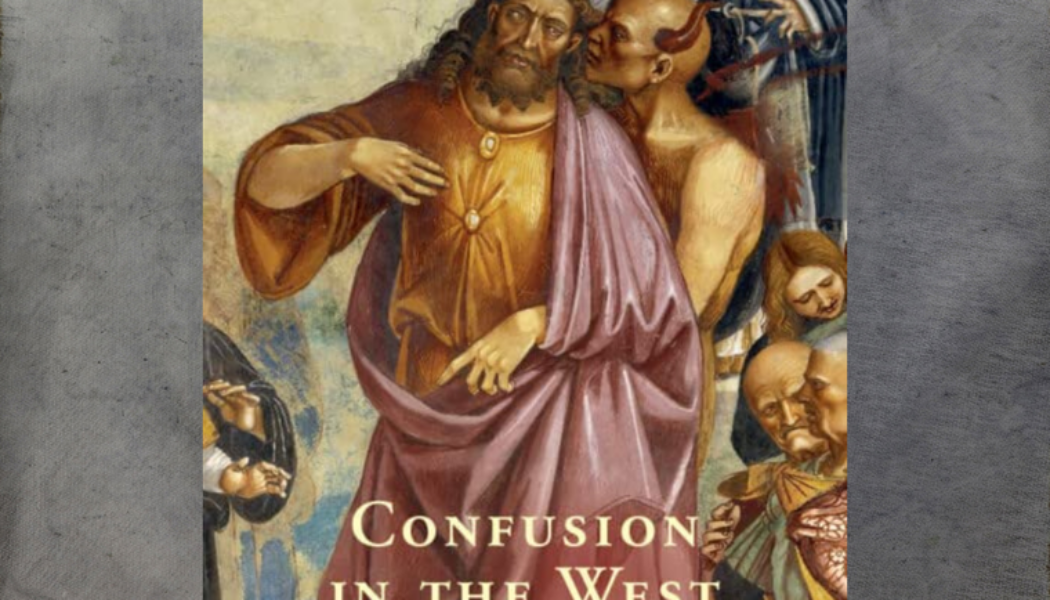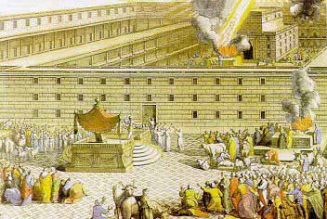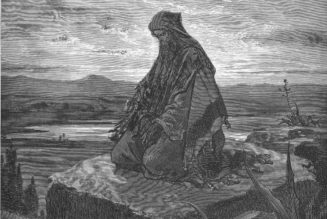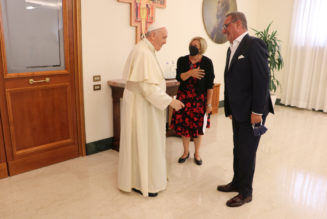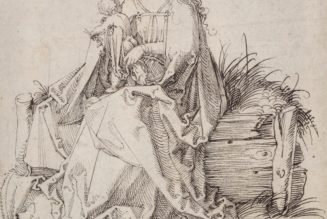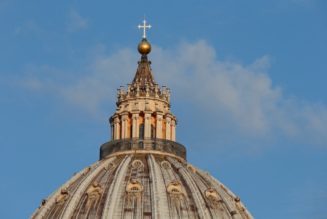
Scholars John and Anna Rist discuss their new book in a three-part series with the Register and EWTN Great Britain.
What are the roots of the widespread confusion that reigns in the West? What went wrong in philosophical and theological thought that has brought the West to what Benedict XVI once called “the edge of the abyss”?
These are the questions that led two highly distinguished English scholars — Professors John and Anna Rist — to delve into the probable causes and propose possible solutions, resulting in a new book: Confusion in the West: Retrieving Tradition in the Modern and Post-Modern World (Cambridge University Press 2022).
In it, they provide a panoramic overview ranging from antiquity to the present-day and explain how the foundational culture of the West, which they characterize as the “original tradition,” has been eroded, leading to anxiety about the entire value of Western thought. But the Rists also investigate the deeper causes of the confusion, beyond just the Enlightenment that is the focus of many critics of modernity, and examine such ills as modern totalitarianism, liberalism, scientism, consumerism, and prevailing nihilism.
John Rist, 86, is regarded as one of the Church’s finest living scholars of ancient philosophy, classics and early Christian philosophy and theology. An expert on St. Augustine of Hippo, Plato and Aristotle and author of many books, he has held the Dominican Father Kurt Pritzl Chair in Philosophy at The Catholic University of America and is a life member of Clare Hall at the University of Cambridge, England.
Anna Rist taught classics at St. Michael’s College in the University of Toronto, Canada, for several years, and read classics and English at Newnham College, Cambridge. She was also an associate editor of the Canadian Catholic Review and is the author of several books, including poetry, as well as serving as her husband’s trusted critic to many of his books on philosophy. The couple have four children, all Catholic.
In May, Register senior correspondent Edward Pentin sat down with the Rists at their home in Cambridge to discuss their book.
The conversation, filmed by EWTN GB, can be watched in three parts:
In the first, they explain why they chose to write the book; how the decline in education has fomented the confusion; what we can learn from the ancient Greek philosophers in dealing with today’s culture and society; how “scientistic humanism” partly led to the collapse of the original tradition; and how the division between theology and philosophy in the middle of the 12th century, muddled scholasticism, and ultimately disputes over theories about God sowed the seeds for today’s confusion.
[embedded content]
In the second part, Rist explains how Protestantism “began the process of corrosion of traditional Christianity” and how this has eventually entered the Catholic Church; the impact on philosophy of living longer; what St. Augustine can teach us today (and how his thought was distorted during and after the Middle Ages); the causes of the current crisis of reason and how this has led to voluntarism; and the weaknesses of Immanuel Kant’s philosophy.
[embedded content]
For the final part, modern totalitarianism is discussed and how it differs from that of ancient societies, namely that since the French Revolution, such totalitarianism has become political and the boundaries between private and public spheres are erased; how the “soft totalitarianism” of modern liberalism has come about, namely by denial of original sin, and why it is detached from reality; how we can return to “original tradition,” whether we have the philosophical means to do so, and the importance of returning to honesty and objective truth before we can discard the errors of modern philosophy and bring society back to belief in God. Lastly, he explains why the work of John Rawls (1921-2002), whom John Rist calls “the god of contemporary liberalism,” needs to be “faced head-on.”
[embedded content]
On July 27, John Rist published a new book Infallibility, Integrity and Obedience: The Papacy and the Roman Catholic Church, 1848-2023 (James Clarke & Co Ltd 2023), in which he further exposes the philosophical developments that he says have led to the current doctrinal and structural crisis in the Church, and explains why he believes a misapprehension of the nature and definition of papal infallibility is at the root of the crisis facing the Church today.
He also proposes how the conciliar and individual decisions that have led to the current situation might be reversed, and how the proper role of the Pope can be reclaimed for the good of the Church.
